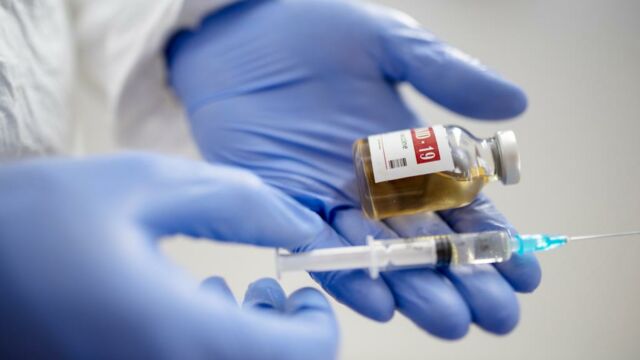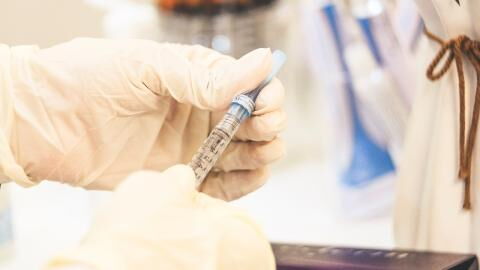The recent Com-Cov study aimed to discover the results of mixing coronavirus vaccines in the hopes that it could provide extra protection or hold a solution to vaccine shortages.
Discover our latest podcast
The study looked at the effects of two Pfizer jabs, two AstraZeneca jabs and one followed by the other. Results showed that all combinations worked well to prime the immune system against coronavirus. Additionally, those who already have two doses of the AstraZeneca vaccine could receive an increased immune response by opting for a different booster jab.
Still, the results of mixing jabs weren’t wildly more beneficial than the current programme. As a result, professor Jonathan Van-Tam, the UK's deputy chief medical officer, suggested that it’s likelyno changes will be made to the current vaccine rollout. Still, the study’s results could provide flexibility for the future.
Mixing doses could provide us with even greater flexibility for a booster programme, while also supporting countries who have further to go with their vaccine rollouts, and who may be experiencing supply difficulties.
What were the results?
While all combinations provided protection from Coronavirus, researchers at Oxford found no significant differences in antibodies and T-cells responses in each jab combination.
The study consisted of giving two jabs four weeks apart to 830 volunteers aged 50 and above and found that two doses of the Pfizer vaccine provided the highest level of antibodies.
Meanwhile, one dose of the AstraZeneca jab followed by a Pfizer shot was a close second. Reversing the scenario, one dose of Pfizer followed by AstraZeneca provided antibodies almost seven times lower than two doses of Pfizer. Still, this was five times higher antibodies than those who received two AstraZeneca vaccines.
Matthew Snape, the chief investigator on theCom-Cov trial and associate professor in paediatrics and vaccinology at Oxford, expanded on the situation:
You’ve certainly got an extra kick to your immune system if you boost with the RNA vaccine from Pfizer rather than a booster dose of the AstraZeneca vaccine.
Vaccine boosters to roll out in September
The coronavirus vaccine booster rollout is already being planned for September, with the most vulnerable being first in line for winter protection.
The Joint Committee on Vaccination and Immunisation (JCVI) has already provided interim guidance, setting out a priority list for the third jabs if they are required. The plans have been conducted in advance to ensure the NHS is as prepared as possible for the new jab campaign. However, officials are still waiting on more data to determine if a booster rollout will be the most effective course of action.
The COVID booster jabs will also coincide with the rollout of the yearly influenza shots - said to be necessary for the incoming flu season.
Health Secretary Sajid Javid revealed: ‘Our first COVID-19 vaccination programme is restoring freedom in this country, and our booster programme will protect this freedom.’
We are working with the NHS to make sure we can rapidly deliver this programme to maintain protection for people in the winter months.
The booster rollout will occur in two stages; the first prioritising immunosuppressed residents, those over the age of 70, healthcare workers and those living in residential homes.
The second phase of the booster rollout will invite those 50 and over, those aged 16-49 who are at risk for influenza or COVID, as well as adult household contacts of immunosuppressed individuals for inoculation.















